Spain's bear population is growing, thanks to crucial conservation work.

At TENT, our focus has always been on large wild areas, where ecosystems can be regulated at scale by the recovery of natural processes. We choose to partner with local foundations to improve the protection and enjoyment of wild areas in Europe. Now, we’re embarking on a new partnership with NGOs working in the Upper Tagus region of wild Spain.
Spain is arguably the most biodiverse country in Europe. It is also the country with the largest surface area of terrestrial protected areas, covering around 27% of its land mass. However, many of Spain’s 3,705 protected areas lack effective management and public support, and though they have extensive coverage, more than 55% of Spain’s habitats are considered in poor condition under the Habitats Directive.
Like many other conservation NGOs, we believe that Spain is a leader in European conservation. That’s why we’re forging a new partnership with the Nuestros Espacios Protegidos (i.e. Our Protected Areas) initiative. The project aims to foster national pride and public support for Spain's protected areas, increase their size and, most importantly, improve their management and conservation. Nuestros Espacios Protegidos is a collaboration between EUROPARC Spain and Frankfurt Zoological Society, and is coordinated by Ignacio Jiménez, a Spanish conservation biologist with extensive international experience in Central and South America and Madagascar. He was one of the leaders of Tompkins Conservation's Iberá Programme, which included the creation of the largest park in Argentina and the largest reintroduction programme in the Americas.
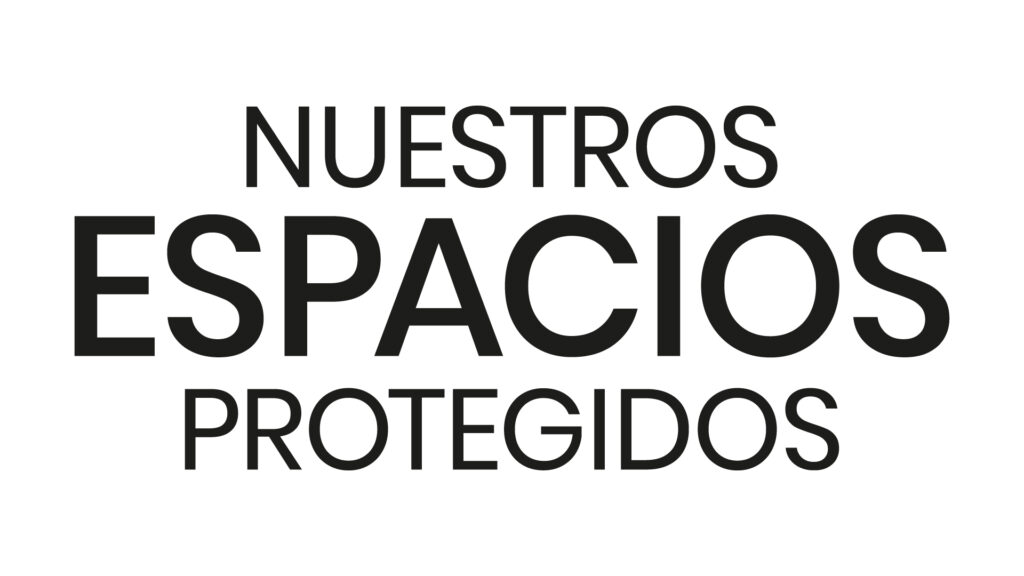
Improving the management and extent of protected areas is becoming an international priority – one that Spain is already leading on. During the 2022 UN biodiversity conference, COP15, countries reached a landmark agreement that aims to reverse the unprecedented destruction of nature. One of the agreement’s twenty-three targets, known as 30x30, aims to protect at least 30 percent of the planet’s land and water by 2030. Effectively managed protected areas in Europe can preserve and restore biodiversity and provide a valuable source of employment and investment for rural communities. Studies show that proximity to well protected areas can improve human wellbeing and health.
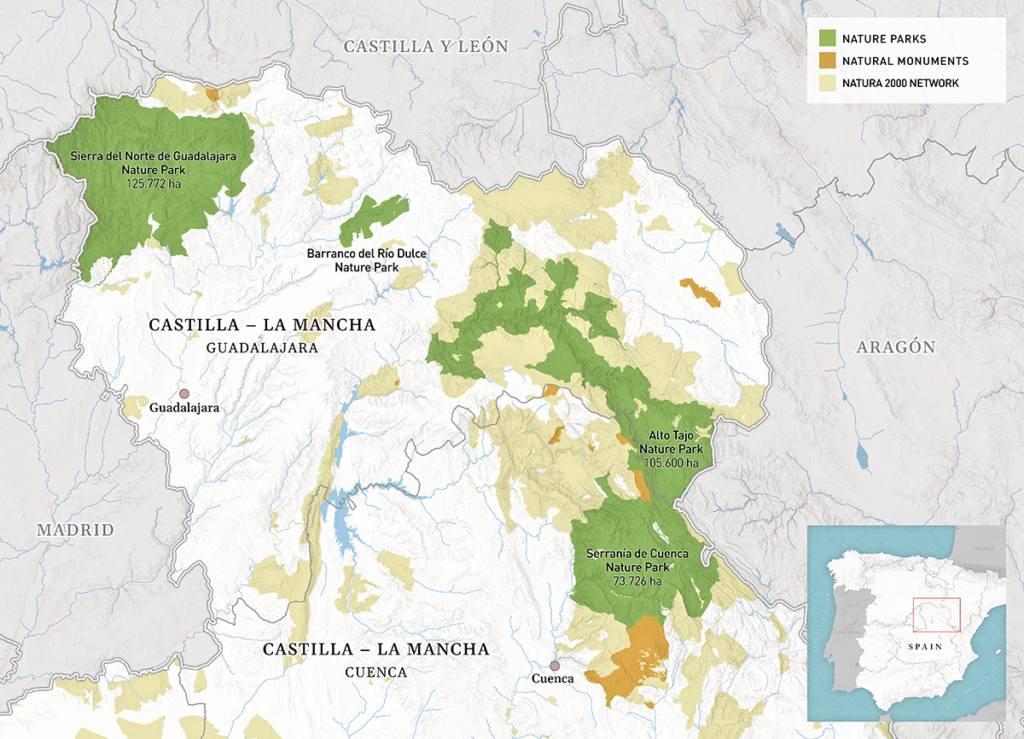
In February 2023, The European Nature Trust visited the project area for an immersive weeklong experience. Here, we began to understand the value of protected areas to the Spanish rural landscape, and the huge potential for conservation to mitigate the impacts of rural depopulation and invigorate the economy of Castilla La Mancha.
The Nuestros Espacios Protegidos initiative aims to work with environmental authorities, local governments, other NGOs and local associations to turn the Alto Tajo and Serranía de Cuenca nature parks into highly effective protected areas that offer conservation and restoration of ecosystems while improving the quality of life of local communities. In addition, the NGO hopes to showcase this type of collaborative conservation as an inspiration for other protected areas in Spain and for the Spanish public in general.
Ongoing and future activities include participatory processes to create Spain's 17th national park within this region, the promotion and regulation of public use within the Alto Tajo natural park, supporting local villages to treat their water sewage systems, conservation outreach with local children and youth, and reducing the effects of hunting.
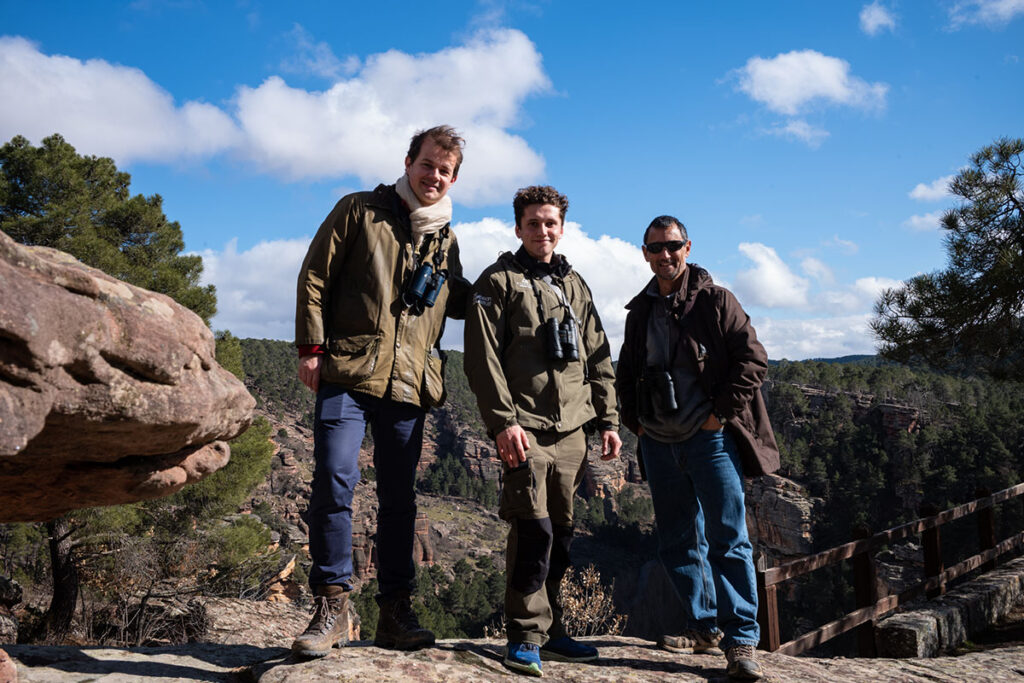
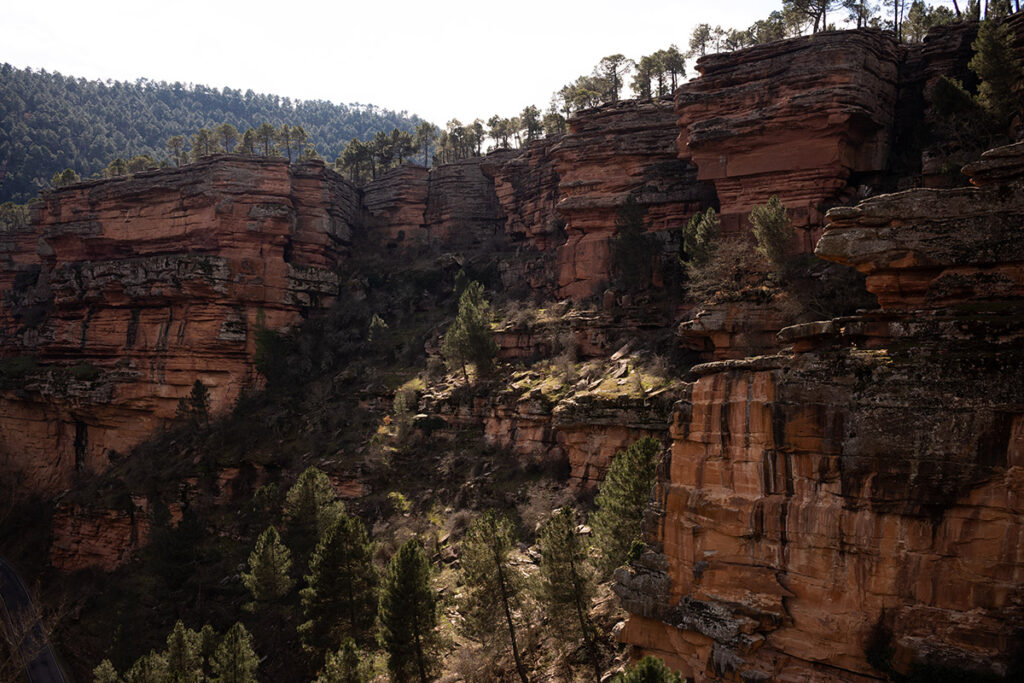
TENT's Conservation Manager, Jacob Dykes with Ignacio Jimenéz of Nuestros Espacios Protegidos, and Jamie Dunlop of the Australian Wildlife Conservancy.
Conservation analysis:
The Upper Tagus Region
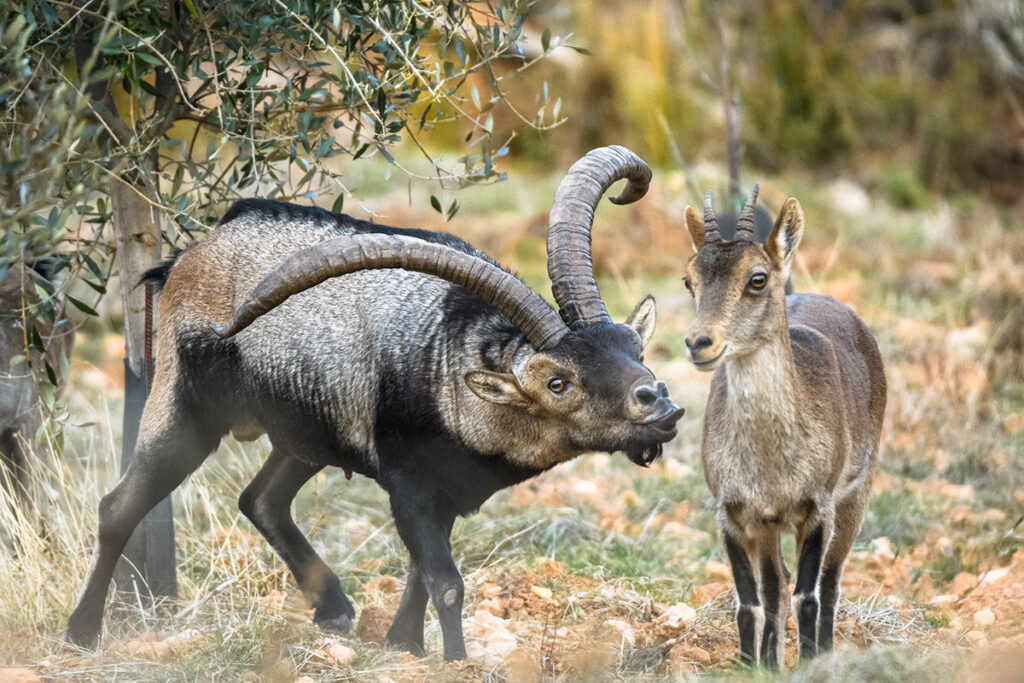
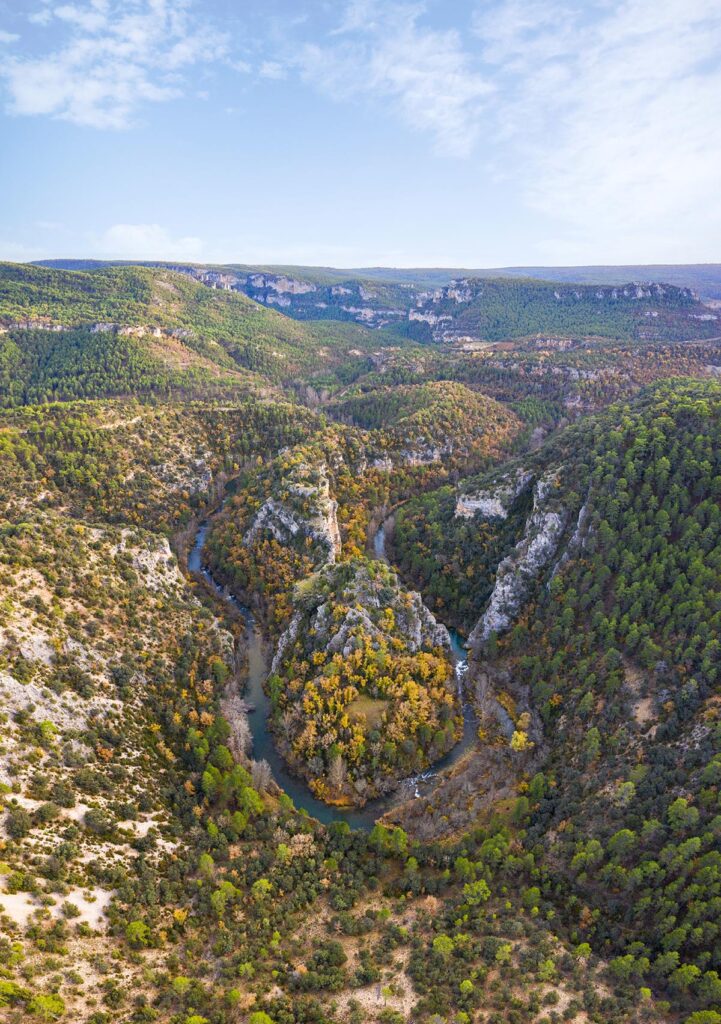
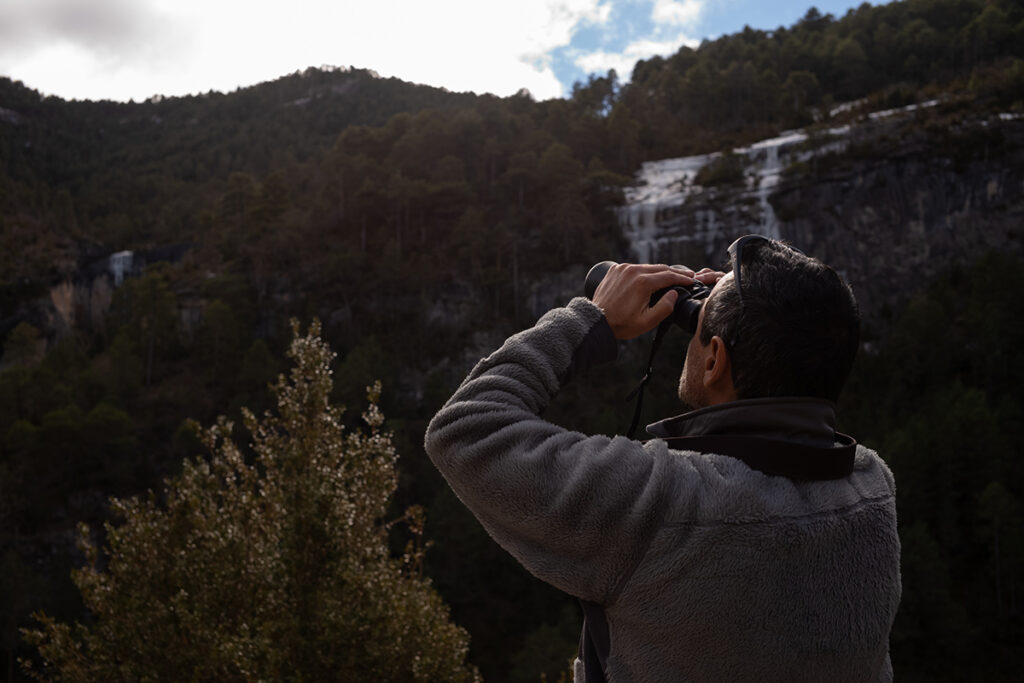


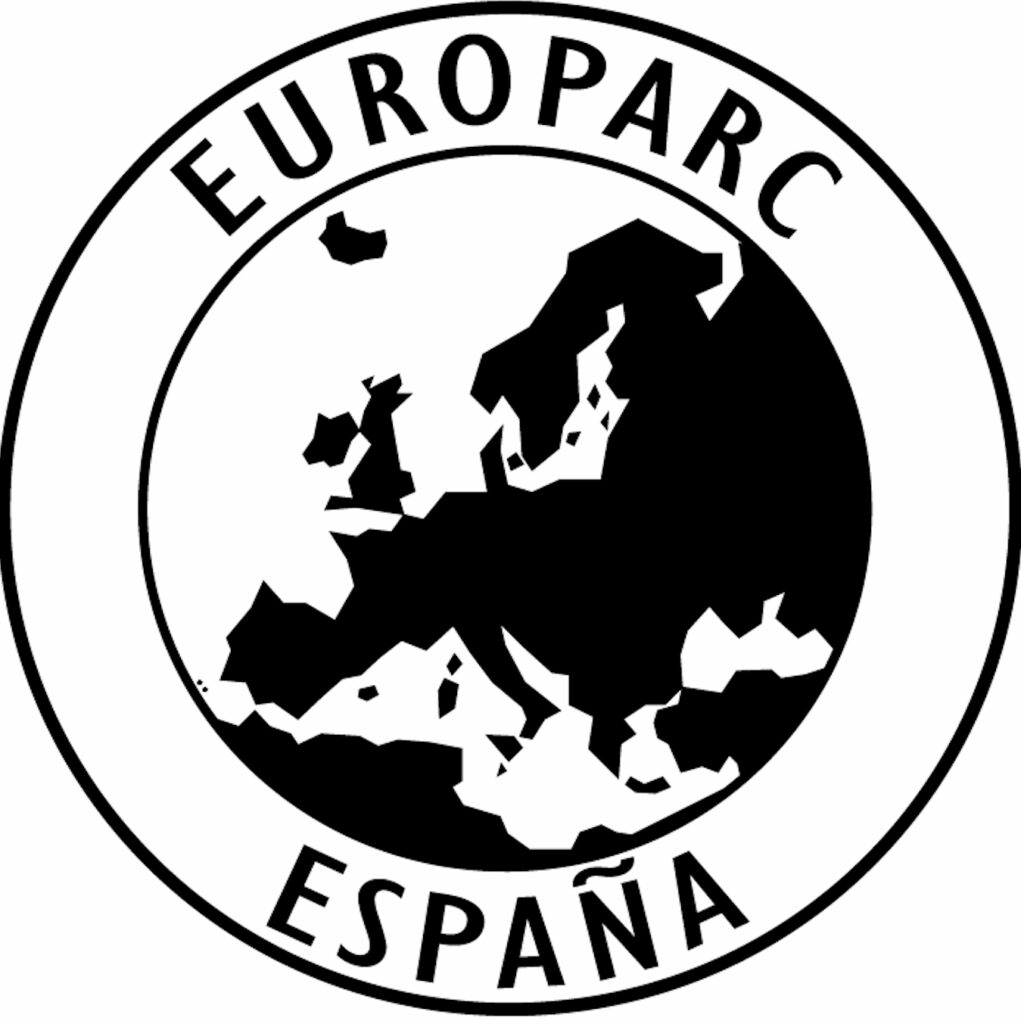
Nuestros Espacios Protegidos is a collaboration between EUROPARC Spain and Frankfurt Zoological Society, and is coordinated by Ignacio Jiménez, a Spanish conservation biologist. The European Nature Trust is actively collaborating to drive awareness and engagement with the initiative.
Spain's bear population is growing, thanks to crucial conservation work.
Through the FIRNS initiative, TENT is working on a new blueprint for investment into nature recovery.
An amazing attendance at the RGS to celebrate Belizean conservation!

